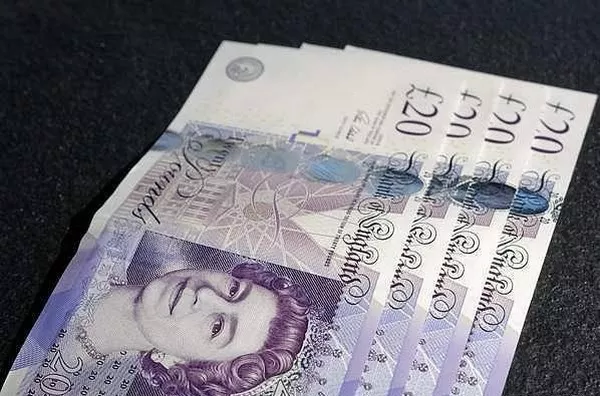In the dynamic world of forex trading, investors are constantly seeking insights into the future of various currencies, and the British Pound is no exception. The question that frequently arises is, “Will the Pound get stronger?” In this article, we will delve into this intriguing query, breaking it down into key aspects and examining the factors that may influence the Pound’s trajectory in the coming months and years.
1. Post-Brexit Impact on the Pound
Introduction: The Pound’s Rocky Journey
Since the United Kingdom’s decision to leave the European Union in January 2020, the British Pound has experienced significant fluctuations. The uncertainty surrounding Brexit negotiations and trade agreements cast a shadow over the currency. Let’s explore the implications of Brexit on the Pound’s strength in more detail.
Transition Period After Brexit
The immediate aftermath of Brexit saw the Pound plummet, reflecting the uncertainty surrounding the UK’s future trade relationships.
However, as time passed and trade agreements were established, the Pound began to recover.
Trade Deals and Economic Growth
One of the pivotal factors influencing the Pound’s strength is the success of the UK in securing favorable trade deals with its international partners. A thriving export market and economic growth can provide strong support for the currency.
According to the Office for National Statistics, the UK’s GDP grew by 4.8% in Q2 2021, indicating a resilient economy despite the challenges posed by Brexit and the COVID-19 pandemic. This growth bodes well for the Pound’s strength.
2. Economic Indicators and the Pound
Introduction: Monitoring the Vital Signs
In the realm of forex trading, economic indicators play a vital role in predicting currency movements. Traders and investors closely watch these indicators to gauge the health of a nation’s economy and its potential impact on its currency’s value.
Interest Rates and Inflation
Central banks, such as the Bank of England, play a critical role in shaping a currency’s strength. Interest rates set by these institutions have a direct influence on forex markets. When interest rates rise, the Pound often strengthens as it becomes a more attractive investment option. Conversely, lower interest rates can lead to a weaker Pound.
Inflation and Purchasing Power
Inflation rates also affect a currency’s value. A high inflation rate erodes the purchasing power of a currency, causing it to weaken.
Conversely, lower inflation can contribute to a stronger Pound, as it maintains the currency’s value over time.
3. Global Economic Events
Introduction: The Ripple Effect
The global economy is interconnected, and events around the world can have a significant impact on the strength of the Pound. Let’s explore some key global events and their potential consequences for the British Pound.
U.S. Federal Reserve Policies
The monetary policies of the U.S. Federal Reserve often have a domino effect on global currencies. If the Federal Reserve decides to raise interest rates, it can lead to a stronger U.S. Dollar, which may, in turn, weaken the Pound.
Geopolitical Events
Geopolitical tensions and conflicts can create uncertainty in the forex market. For example, heightened tensions between the UK and other nations can lead to fluctuations in the Pound’s value.
4. Market Sentiment and Technical Analysis
Introduction: The Power of Perception
In addition to fundamental factors, market sentiment and technical analysis are essential aspects of forex trading. Traders often rely on these tools to make informed decisions about currency positions.
Sentiment Analysis
Market sentiment can be a self-fulfilling prophecy. Positive news and sentiment about the UK economy can attract more investors, bolstering the Pound’s strength. Conversely, negative sentiment can lead to a weakening Pound.
Technical Analysis
Technical analysis involves studying historical price charts and patterns to predict future price movements. Traders use indicators like moving averages, RSI, and Fibonacci retracements to make informed decisions.
5. COVID-19’s Ongoing Impact
Introduction: A Pandemic’s Long Shadow
The COVID-19 pandemic has had a profound and lasting impact on economies worldwide. The Pound, too, has felt the effects of this global crisis.
Vaccination and Economic Recovery
The successful rollout of vaccination programs in the UK has paved the way for economic recovery. As the nation reopens, it may stimulate consumer spending and economic growth, potentially strengthening the Pound.
Fiscal and Monetary Stimulus
The UK government’s fiscal policies and the Bank of England’s monetary measures have played a crucial role in supporting the economy during the pandemic. These initiatives can have a positive impact on the Pound’s strength.
In conclusion, predicting the future strength of the British Pound is a complex endeavor that involves analyzing a multitude of factors, including economic indicators, global events, market sentiment, and the ongoing impact of COVID-19. While the Pound’s journey may be uncertain, traders and investors can navigate this terrain by staying informed, monitoring key developments, and making data-driven decisions. As the global landscape continues to evolve, so too will the factors influencing the Pound’s strength in the forex market.
Related Topics:
Danske Bank: EUR/GBP set to edge higher but volatility to remain high
Update for the GBP/USD (Monday, 7.24)
GBP (1.2754, 0.0051, 0.40%)/USD on July 6


